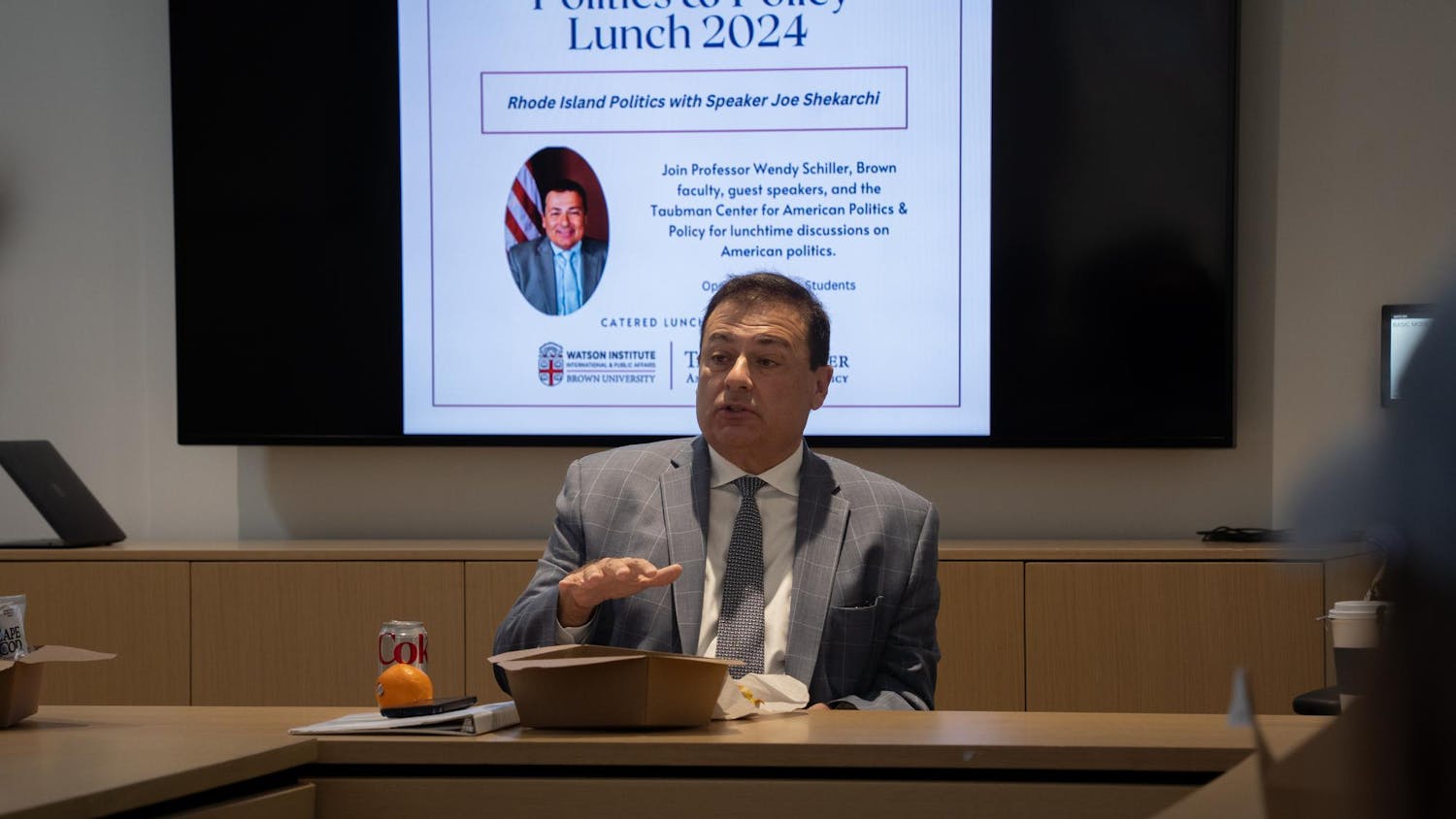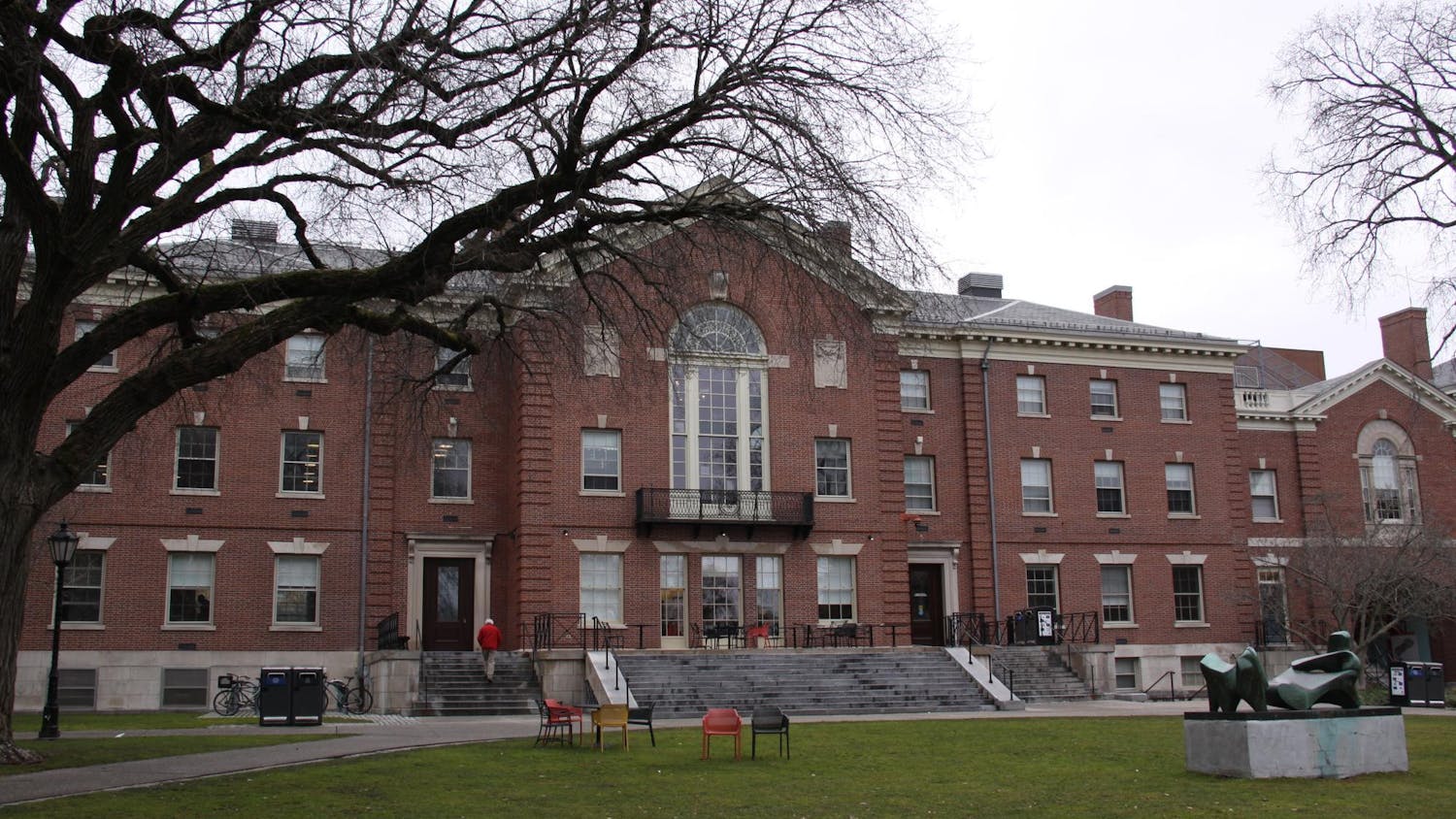A small group of Ivy League students convened this weekend at the Hope Club for an intimate conference that brought together people of all perspectives to engage in a meaningful dialogue about the Israeli-Palestinian conflict.
The Student Leadership Colloquium, which included three or four students from each Ivy League school, was organized and funded by the Avi Schaefer Fund. Following Avi Schaefer's '13 death in February 2010, his family created the fund to promote the ideals Schaefer worked toward during his life, particularly the goal of starting dialogue about the conflict and striving for its peaceful resolution. The idea for the colloquium originated from conversations Schaefer's family and friends had about how best to continue his efforts.
At the colloquium this weekend, those initial planners joined forces with students, whose views were challenged through a series of workshops, lectures, organized discussions and spontaneous conversations — all within "a real atmosphere of respect, tolerance and understanding," said Talia Xefos '15, one of the Brown student participants.
Xefos, who is half-Saudi and said she "grew up hearing mostly the Palestinian narrative of things," learned about the colloquium through JUDS 0650: "History of Zionism and the Birth of the State of Israel," a class she took last semester. Encouraged by the welcoming atmosphere the Schaefer family brought to the colloquium, she said she opened up to other participants and found unexpected common ground, connecting in particular with a Middle Eastern Jewish male student from Cornell.
"One of the most profound things for me was I made friends, to be honest with you," Xefos said. "And that is just not something I would have ever imagined happening."
Schaefer, who served in the Israeli army for three years before starting at Brown in 2009, had a significant impact on campus discussions of the Israeli-Palestinian conflict during his time at the University, sparking friendships and dialogue with Jonah Fisher '12, Rahel Dette '13 and Sami Jarbawi '12, his Arabic teaching assistant, among others, Fisher said. Two years later, those three friends served as principal organizers and facilitators of the colloquium that Schaefer and Dette had first dreamed of, Fisher added.
"I was in somewhat of a state of shock for a lot of the weekend … to see that coming to fruition," Fisher said. "It's hard to know how to memorialize a friend or a family member. … This colloquium feels like it was a part or an extension of the conversations I had with Avi."
When the idea for the colloquium first arose, all the planners had to guide them was their imagination. They were inspired by the example the Schaefer family put forth of moving forward from their grief productively.
"At the services for Avi, this phrase, ‘Seek peace and pursue it,' kept being spoken," said University Chaplain Janet Cooper Nelson.
After Schaefer's death, his family met with President Ruth Simmons, who then spread the idea of the colloquium to other Ivy League presidents, Fisher said. Cooper Nelson also communicated with her chaplain peers at universities last year to encourage the idea.
Led by Schaefer's brother Yoav, a team of 15 planned extensively for the weekend over the past year and a half, and Cooper Nelson helped search for a location. The Hope Club was eventually chosen for its mixture of comfort, practicality and formality.
The application process for Brown students looking to join the colloquium included an essay and an interview, though each university's process differed. Cooper Nelson said in future years she hopes to tweak the process in some small ways.
"One thing that we would do differently was we didn't create a waiting list," she said, which became a problem when a student delegate from Yale dropped out at the last minute.
The students who came were mostly Muslim and Jewish with varied backgrounds, and their interactions were pivotal to the colloquium's success, Fisher said.
"The real work of the weekend, in my opinion, was the encounter of the students," he said, especially given that many students lead groups with opposing missions on their campuses. Though much of the weekend was intense and emotional, the students also made time for fun, Fisher said, making use of a game room and having an ice cream party.
That atmosphere was enhanced by the familial nature of the conference, with Schaefer's parents intimately involved throughout the weekend, Cooper Nelson said. She cited in particular "the specificity of their care" in choosing ice cream sundae toppings and turning down some beds themselves.
"The energy of this family, in their sorrow, to work on this project, I think, left all of us breathless," Nelson said.
As the students maneuvered through packed schedules, the concept of narrative — in understanding others and expressing themselves — was a recurrent theme. Adam Waters '15, another Brown representative, said he learned, "rather than continue to escalate the conversation, to step in and to try to show the person that you understand what they're saying."
"It seems pretty intuitive and kind of obvious, but I think it's something that doesn't really happen a lot" in the Israeli-Palestinian discourse, Waters added.
Nizar Farsakh, a leadership consultant and former teaching fellow at the Kennedy School of Government, led a session for the students on re-framing and re-understanding narratives that Fisher called one of the weekend's "most powerful" moments. "We oftentimes resort to speaking in platitudes," Fisher said. He said he learned in the session when it is more important to ask, "Who are you, what have your experiences been and how have they been?"
Xefos said participants called it "the interrogation session," because Farsakh asked students probing questions to force them to re-evaluate the way they communicate. Xefos added that the techniques and skills she learned will be useful in how she approaches not just the Israeli-Palestinian conflict but any argument she encounters.
Farsakh said these ideas have powerful applications in the real world.
"It's basically about the art of inspiring action, so how do you get people to do an activity — and that's different from convincing people that something is important," he said. "It's basically that you need to tell a narrative and not just give a strategy or just unfold a platform."
After absorbing so many ideas and stories, the individual university delegations convened on Saturday night to discuss ways to bring what they had learned back
to campus. Waters said the colloquium gave him renewed momentum to approach the issue.
"I had already kind of become a little disillusioned in terms of what could be done (at Brown)," he said. "It was really nice and inspiring and refreshing to see … they were still willing to work with each other and they were still willing to talk to each other, and not a single person raised their voice the entire weekend."
Xefos said the group hopes to meet with Simmons to discuss future action on campus, and some of their ideas include "creating a neutral space not affiliated with anything, where people can come together to openly discuss and try to understand one another," like that at the Hope Club.
Waters said such changes were imperative for the campus community, where he said the conversation has become so polarized that many students choose not to get involved if they have moderate views.
"I think that would do a tremendous amount for inspiring people to become re-interested in this issue," he said.
Rabbi Melissa Weintraub, a facilitator, trainer and consultant in conflict resolution who led a session at the colloquium, said she emphasized the need to move past polarization by teaching students specific communication skills. "For many of them, that really struck home when they got into the heated conversations and realized that they were having them in a new way, and as a result they were listening to each other and actually understanding each other," she said.
Plans are already in the works to make the colloquium an annual event. Cooper Nelson said she envisions generations of participants forming communities on each campus over the years. "While it's not firm, we are already picturing next year's project," she said, especially because it has the backing of many top administration officials.
Xefos said she walked away from the conference with a new perspective. "I've been too judgmental," she said. "Yes, they may fall on the opposite end of the political spectrum, (but) on sort of a human level, it's really nice to be able to connect with people."
Fisher said he was happy the colloquium materialized and actually achieved its goals. "The energy was palpable, and people really said enormous things," he said. "All of us involved in the planning were just hoping that it didn't flop … and it was actually a phenomenal success."




